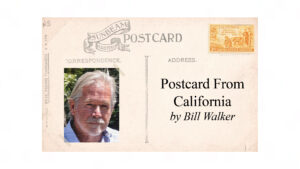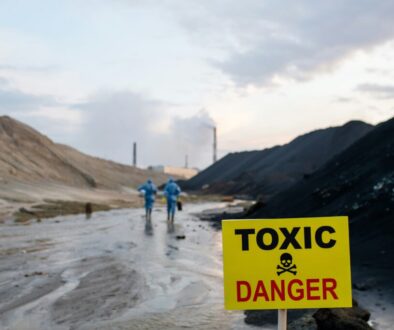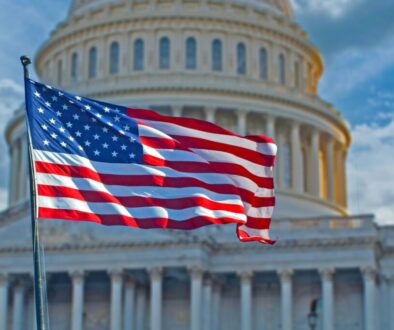Postcard from California: Trump vs. the delta smelt
 The most powerful man in the world is waging war on a tiny, almost extinct fish.
The most powerful man in the world is waging war on a tiny, almost extinct fish.
The fish is the minnow-like delta smelt, less than three inches long with a lifespan of only a year. Its sole natural habitat is the Sacramento-San Joaquin River Delta – a marshy maze of more than 1,100 miles of waterways, levees and islands where its namesake rivers intertwine.
The smelt is a federally protected threatened species, a state endangered species and a key indicator species for the overall health of the Delta, a crucial migration corridor for Pacific salmon and steelhead trout.
It is under attack by President Trump, who blames the “essentially worthless fish” for restrictions on the flow of water from the Delta to Central Valley farms and Southern California cities.
The smelt’s survival depends on keeping enough fresh river water in the Delta to balance the salty seawater drifting in from San Francisco Bay. Until it was declared endangered in 2009, triggering flow limits, few people other than California water wonks had heard of it.
It has become a flashpoint in the California water wars – the never-ending debate over the best use of a scarce resource in a state burdened with recurrent drought, wildfires, and the climate crisis.
Now Trump is seizing control of the debate – regulations and the truth be damned.
On the first day of his second term, he issued an order – “Putting People over Fish: Stopping Radical Environmentalism to Provide Water to Southern California” – directing federal agencies to increase flows from the Delta, even if it means overriding state policy. He noted that he tried to do this in his first term, but was blocked by a state lawsuit “allegedly in protection of the Delta smelt and other species of fish.”
Before Trump visited Los Angeles during the catastrophic January fires, he absurdly claimed that Delta flow restrictions were why some fire hydrants ran dry. In reality, L.A. reservoirs were full, but the hydrants lost pressure due to extraordinary demand.
On Trump’s return to Washington, he posted on his Truth Social network that “the US Military just entered the Great State of California, and under Emergency Powers, TURNED ON THE WATER.” That echoed his clam during the campaign that turning on a “very large faucet” would stop water from going “aimlessly into the Pacific.”
Here’s what really happened.
On Trump’s orders, on Jan. 30 – when the fires were almost completely contained – the US Army Corps of Engineers released more than two billion gallons of water from two federally managed reservoirs, far downstream from the Delta, that supply irrigation water to the Central Valley. The water didn’t come within 150 miles of Los Angeles, which is only tangentially connected to the irrigation grid.
With little advance warning, Valley irrigation districts were forced to scramble to avoid flooding by diverting the unexpected influx to low-lying areas – water that normally would be held back for the summer growing season.
Ann Willis, California director of the nonprofit American Rivers, told the Los Angeles Times the release was “cavalier and an extremely high-risk decision, and wasteful. To intentionally create a situation where (destructive floods) could have been the outcome, it’s depraved and mind-blowing.”
Trump threatened to withhold disaster relief from Los Angeles unless California Gov. Gavin Newsom got on board with his water agenda. Newsom, who advocates construction of a $20 billion tunnel to speed more Sacramento River water through the Delta, put aside his enmity toward Trump to go to the White House and issue his own order echoing the president’s.
California conservatives, particularly farmers, have scapegoated the smelt since long before Trump entered politics.
Their grievance went national in 2009, when Fox News host Sean Hannity devoted an entire episode to the controversy. According to Inside Climate News, Hannity bemoaned the “incredible suffering” of Central Valley farmers that followed the state’s decision to “put the interest of a two-inch delta smelt … before the people of California.”
In 2014, then-U.S. Rep Devin Nunes, a Republican from the Central Valley, sponsored a bill to send more Delta water to farms in his district. The bill failed, but not before Nunes railed on the House floor against efforts to save the “stupid little fish, their little delta smelt that they care about.”
Two years later, Trump seized on the issue at a campaign rally in Nunes’ district. In the midst of a severe statewide drought, Trump declared: “There is no drought,” blaming the shortage of farm water on “a certain kind of three-inch fish.” (Coincidentally or not, Nunes is now the head of Trump’s social network.)
Despite the Newsom-Trump truce, tensions between the state and the feds over Delta water policy remain.
In February, scientists at a University of California at Davis delta smelt captive breeding program, crucial to the species’ recovery, were told without explanation their federal funding would not be renewed, apparently a casualty of Trump’s slashing of academic research grants. After UC Davis laid off most of the program’s staff, the grant was renewed, again with no explanation.
In late March, thousands of migrating salmon were sucked into the huge pumps that move water south from the Delta. State officials moved immediately to slow pumping, following longstanding joint state-federal policy to protect salmon and trout. Mindful of Trump’s orders to maximize flows, federal officials argued that maybe the slowdown wasn’t necessary, before eventually agreeing with the state.
The political tug-of-war over fish, water, farms and cities tends to obscure that the Delta is a natural treasure that warrants protection. Its waters and islands, birds and marine mammals, and banks lined with valley oaks and eucalyptus are imperiled not only by water grabs but encroachment from the nearby San Francisco Bay Area.
In a recent New York Times essay, Ryan Christopher Jones, a Harvard University anthropologist who studies water politics, wrote that the “so-called war” over Delta water “is a dangerous, flawed trope that … turns the Delta into a place with no local stakes.”
“Faced with threats of drought, climate change and water scarcity,” wrote Jones, “we should not reduce this place to a warring of two – or many – sides.”
- Bill Walker has more than 40 years of experience as a journalist and environmental advocate. He lives in California’s San Joaquin Valley.
(Opinion columns published in The New Lede represent the views of the individual(s) authoring the columns and not necessarily the perspectives of TNL editors.)
(Featured photo by Photo by Steven Kelly on Unsplash.)
 EWG
EWG


